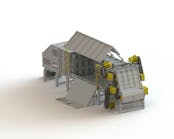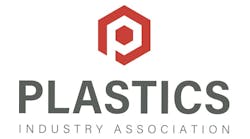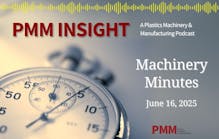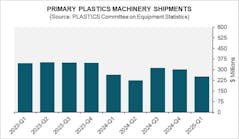Family businesses seldom grow into industry leaders with a global presence. But that’s what happened with Reifenhäuser Group, founded in Germany as a forge in 1911 by Anton Reifenhäuser. After 108 years, the company has evolved into one of the world’s largest suppliers of machinery and equipment for extruding plastics. Still 100 percent family-owned, the company is led by brothers Bernd and Ulrich Reifenhäuser. Bernd Reifenhäuser discussed the company’s growth and plans with Plastics Machinery Magazine senior staff reporter Bruce Adams.
The company has the world’s largest privately operated R&D center for nonwovens and films in Troisdorf. What is the importance of such a facility?
Reifenhäuser: We have two large lab centers here with 11 lines. If we would run it three shifts, it would give an output of 60,000 tons per year. These labs are nonwoven lines, blown film, cast sheet and extrusion coating lines. We invest because it’s not good enough to have a nice machine that does a good job. We have much more to offer to the markets. We have full production lines with the newest technologies in our lab centers to do application tests and product tests for our customers to try new technologies or new materials. This capability becomes even more important with the recyclability of plastics and sustainability becoming a top issue.
Reifenhäuser is known for pushing the envelope: At K2013, it presented a single- screw extruder that didn’t require water for cooling the intake area; rather, it used thermo- electric generators. Where is that technology now?
Reifenhäuser: It worked, but it was too expensive. We like to pioneer in different areas. We look to other industries to see what could fit in our industry. We didn’t find a supplier who could supply it for a reasonable amount to make our customers happy. While the idea is not a part of our daily business, we still have it in our pocket. A lot of ideas take 10 to 15 years to come to fruition as certain materials become less expensive.
What can visitors to your K2019 booth expect to see?
Reifenhäuser: We will have a special focus on the circular economy. We will show what we are doing as an extrusion line supplier for and with our customers. This goes beyond the design of our machines. It goes into final products, where we design special products with our customers and partners to fit the circular economy approach.
Another strategic focus will be on our digitalization. We are going to show where we have applied our digital products and what our customers can expect from us.
We also will present our business unit Reifenhäuser Extrusion Systems, where we have combined all extrusion components under one roof. This is a new approach. We formed this business unit last year. In February, we acquired a company called Plamex, which is a leading supplier of water-quench and multi-bubble extrusion lines. Their technology will be a strong addition to our portfolio.
Tell us more about Reifenhäuser’s digital transformation and what it means in terms of machinery innovation.
Reifenhäuser: The new lines will be digitalized and enable the digitalization of the value stream. They will have a new HMI, a diagnostics center, an interface into the IT infrastructure of the customer and into the customer’s customer. They also will have Big Data analyzers that will enable us to push the efficiencies of our lines and the business of our customers. This will be a new set of services that we will show at K2019.
You have vertically integrated the company via acquisition. What technologies will result from this?
Reifenhäuser: EDS, a manufacturer of flat dies, was in a line of acquisitions in the last four to five years. We first acquired Westland Corp. and Enka Tecnica, and EDS was one of the last acquisitions. Now, we have formed the components business unit, Reifenhäuser Extrusion Systems. This unit will be offering screws and barrels, complete extruders, flat dies and spinneret dies, for our applications and for alternative applications in the market.
The company’s manufacturing primarily is in Germany. Do you ever see a time when it would manufacture in other countries?
Reifenhäuser: We manufacture screws and barrels in the United States with our plant in Wichita, Kansas. We could do something in Asia or China. But we believe the concentration of knowledge at one base where engineering and manufacturing are close together is a big advantage.
We offer non-standard lines that are tailored to our customers’ needs. The advantage of operating in a lower-cost country fades away when you want to offer complex lines and customized machines. Our customers require specialized lines because the plastics industry is very diversified. To serve this need, it is an advantage to have our knowledge at one place where R&D, manufacturing and engineering are combined.
We are close to our customers worldwide through our 11 regional sales and service offices with more than 100 employees, helping customers with consultation, maintenance and support. We offer this support on each continent to support our partners.
How did you get your start?
Reifenhäuser: I was working until 2008 in the automotive supply industry. I am the youngest son of our family. I started my career in the automotive supply industry working for big corporations. I was running big mechanical and chemical plants in the auto industry. I also worked for a private-equity company. In 1999, my father died, and I got more involved with the Reifenhäuser supervisory board. I joined the company in 2008.
What major challenges did you encounter as your business grew?
Reifenhäuser: The financial crisis of 2008. We dropped below 50 percent of normal year order income. That was harsh. But we were stronger after the crisis than before because we made some bold strategic decisions to invest in our company and acquire a competitor. We also put our engineers, who did not have enough operational work at the time, on innovation projects, which later paid back.
The company took a significant risk by acquiring Kiefel Extrusion in 2009 during the recession.
Reifenhäuser: We took a risk, but we believed the markets would come back, and we were surprised at how fast the markets came back. We consolidated the Reifenhäuser blown film activities with the Kiefel activities. We combined them, and, a half year after the takeover, we created a new generation of extrusion machine called Evolution blown film. It is a new extrusion line for blown film where one plus one becomes three through combining the technologies of two strong companies. This is the base for the success we are having with blown film.
To what do you attribute your company’s success?
Reifenhäuser: Inspired people. Our people make our success. We have created a culture of innovation and an environment in which they can be innovative and be self-entrepreneurial.
What is your impression of Industry 4.0 and its future in extrusion?
Reifenhäuser: It will change the landscape of our industry. Those who don’t join will be at a disadvantage. It will have a significant impact on how we produce and how the value chain will be organized, starting with raw material to the end plastic product, including printing, converting, everything. It will encompass all phases of the value chain.
What is the next phase of machine automation?
Reifenhäuser: Digitalization and the connection of individual value steps. There will be much more information flow between the processes, which will allow us to improve the step-by-step process and the overall process by a significant percentage. It will make a difference between a very profitable, efficient company and just a good- running plant.
What about the issue of sustainability?
Reifenhäuser: It is one of our main strategic focus areas. We are going beyond looking at making our lines consume less energy. We want to go down the value chain and look at the circular economy demand. The lines must produce film structures or product structures that are easier to recycle. Also, our lines have to become more flexible to recycle any material.
How would you like to be remembered?
Reifenhäuser: It’s not about me as a person. What’s important to me is the legacy of our family and the business. That we are trustworthy. That we are running a business with our partners and for our employees with integrity. That we have a vision and we strive to become better every day through innovation, partnership and a spirit of pioneering.






